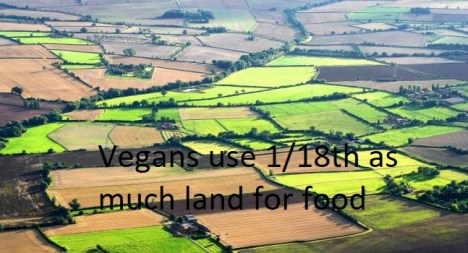I’m pretty chuffed to have won equal first prize for the 2017 Per Capita Young Writers’ Prize. I was hesitant to apply at first, as I didn’t think an article about the livestock industry would be seen as relevant enough to do well, but I’m glad I tried. Below is the essay in full.
The question was: “If you were a Federal Cabinet Minister in a leading portfolio (Environment, Health, Education, Housing, Transport, Industry, Science, Treasury) what would be your principal policy priorities, taking account of the long-term national interest? Explain the reasons for your priorities and outline your strategies for implementation.”
As the Minister for the Environment and Energy of Australia, I have decided to focus my policy priorities on animal agriculture. This is based on extensive research and understanding of national priorities and risks, which will be outlined below. I have also presented a list of policy actions which I will seek to undertake over my term as Minister.
Effects of livestock industry on climate change and the environment
The 2006 report Livestock’s Long Shadow by the Food and Agriculture Organization of the United Nations discusses the environmental impact associated with animal agriculture. The livestock industry is responsible for 14.5% of global anthropogenic greenhouse gas emissions. Despite this, there is a disparity in where climate policy focuses. Climate debate and policy, both in Australia and internationally, rarely acknowledges the role that animal agriculture plays. There is a disparate focus on the energy and transport sectors.
Globally, the livestock industry produces around 130 times more waste than the global human population. This waste can contain a host of diseases, and if water ways become contaminated, can be a serious risk for human health. If the waste reaches the ocean, it becomes a source of major environmental degradation. The Australian livestock industry also uses a disproportionate amount of water resources. In Australia, there is a substantial level of protest around the expansion of fossil fuel extraction, especially the practice of hydraulic fracturing and its impact on water. Given the high water use of industrial animal agriculture, it seems likely that protest and attention will also turn to this industry.
Effect of the livestock industry on human health and animal welfare
Not only does this industry affect wild animals and environment, it also creates an immense amount of suffering for the animals used as food. Undercover investigations have revealed excessive cruelty and suffering as standard practice, particularly in industrial Australian pig and chicken farming. Many Australians are already against animal abuse. While we mitigate the environmental issue, we can also align government policy with the ethical preferences of Australians. The proportion of people who completely eschew animal products, vegans, is also a growing population, and will become a considerable voting force in its own right.
The health impacts of a diet high in animal products are non-trivial. Notably, the World Health Organisation announced in 2015 that they have listed processed meats as a Group 1 carcinogen (carcinogenic to humans), and red meat as a Group 2A carcinogen (probably carcinogenic to humans). While processed meat does not pose as much of a risk to cancer as tobacco, studies have suggested that a diet high in plant-based food leads to lower blood pressure, a reduced risk of type 2 diabetes, and a reduced risk of mortality from cardiovascular disease. As the Australian Government, we have a duty to protect the health of Australian citizens.
Case study – Impacts of climate change on the Pacific Ocean
Global analyses show the upper Pacific Ocean warming. Sea temperatures on the Great Barrier Reef have increased by about 0.4°C over the past 100 years (Lough, 2000). The Great Barrier Reef is an important Australian landmark. It brought US$4.48 billion to Australian businesses in the 2004/2005 financial year, and resulted in the employment of 63,000 individuals (full-time equivalent). It also plays a critical role in biodiversity.
The GBR is most under threat from rising sea temperatures (resulting in more intense and more frequent coral bleaching events), and ocean acidification (reducing the ability of corals and other organisms to calcify). The 2007 IPCC report on climate change outlines the risks to the Great Barrier Reef and likely outcomes in more detail.
Policy recommendations
A multi-level policy is proposed to achieve long-term national interests. We should gradually replace the livestock industry with plant-based farming. This is a trend we expect to occur globally regardless of our involvement, and it is in Australia’s best interest to start laying the groundwork for this transformative shift early. This can be done by reducing livestock subsidies and raising a small tax on animal products, creating disincentives for consumers and producers.
We should assist farmers as they shift from livestock to more sustainable produce. The revenue from the animal product tax can be used to facilitate this support, and may come in the form of grants for land use change or subsidies and tax breaks for producing plant-based foods. Arid land in Australia typically used for grazing livestock can be used to grow other foodstuffs such as almonds and dates, or be used for carbon sequestration.
We should support the Australian food tech industry to develop plant-based and cellular agriculture alternatives to animal products. Already we are lagging behind as USA and Europe develops this technology. We should provide the industry with subsidies and research & development credits. We should host international collaborative events to facilitate technology transfer, particularly with USA and Europe, and also aim to encourage new food tech businesses and partnerships in Australia.
Australia can become a respected leader in this space whilst much of the world lags behind in action on animal agriculture. Whilst Australia’s net emissions are relatively small for the region, our greenhouse gas emissions per capita are amongst the highest in the world. One of our greatest tourist attractions, the Great Barrier Reef, is in danger and relies on a healthy Pacific Ocean.
We should promote a plant-based, whole foods diet through national public health campaigns. Whilst also reducing the public-health burden of Australia, this will have the added effect of reducing the consumption of environmentally damaging animal products. This type of public health campaign has already been demonstrated to work through anti-smoking campaigns, and may result in savings based solely on the public health burden reduction. Our current national health guidelines do not reflect the latest body of evidence on the impacts of animal products, and the healthfulness of a diet high in unprocessed plant foods, and should be urgently reviewed. Other countries, including China, are already beginning to alter their dietary guidelines to reflect the latest evidence on health and environmental impact, and Australia is, once again, lagging behind.
Australia is also well poised to supply Asia with a range of healthy, environmentally friendly and cruelty-free food. As Asia moves out of poverty and demands more luxury foods, we can provide them with high quality meat alternatives. Vegan Australia is developing a series of recommendations for moving to an animal free agricultural system in Australia, which may be beneficial in formulating our own policy.
This is a multi-disciplinary issue, and it requires multi-disciplinary action. A committee of agriculture reform should be formed to facilitate these changes. The policy recommendations outlined here fall under the portfolios of the Minister for the Environment and Energy, the Minister for Health, the Minister for Agriculture and Water Resources, the Minister for Trade, Tourism and Investment, and the Minister for Industry, Innovation and Science, and thus each of these ministers’ offices should be directly involved.
Respected individuals, including Bill Nye, CEO of the Planetary Society, and Tom Hayes, CEO of Tyson Foods, are making public statements that they believe plant-based foods are the future, and they have good reason to think so. Through these policy recommendations, Australia stands to benefit financially both in the short and long term, ensure the long term sustainability of our agriculture and tourism industries, and align government policy with public values.
















